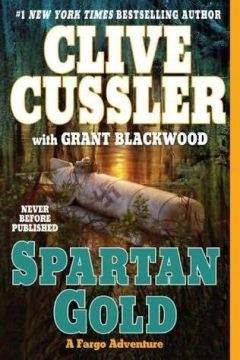“You’re going the wrong way! The docks are this way.”
“Dropped my car keys,” Sam replied. “Be right back.”
A minute later they were inside the tree line. The path curved left, toward the outbuildings, but they kept going straight, ducking under the handrail and into the underbrush. After a hundred feet they stopped and crouched down beneath the boughs of a pine tree. Above, leaden clouds began rolling over the peninsula, blocking out the sun.
For the next twenty minutes they watched through the trees as visitors hurried down paths and across lawns toward the docks. A few minutes later they glimpsed one of the electric tour boats chugging up the fjord, passing two more coming down from the north, all three nosing their way through serrated whitecaps.
Slowly the cacophony of voices died away, leaving only the wind whistling through the trees and snow-muffled shouts of “all aboard!” from the dock area. The loudspeakers, which had been repeating the evacuation notice every thirty seconds, stopped broadcasting.
“Getting colder,” Remi said, hugging herself.
Sam, having heeded the guidebook’s advice, pulled their Wind-breakers and knit caps from his backpack. Remi donned the clothes and pulled her hands into her sweatshirt’s sleeves.
“Think they left with the others?” she asked.
“Depends on what Kholkov thinks we did. The safe bet would have been to wait for the last boat and look for us in the departing crowds.”
“Still, something tells me we’d better assume the worst.”
“I agree.”
They waited a full hour after the last boat had disappeared up the fjord. Filled with fat snowflakes, the wind was gusting heavily, shaking the tree canopies. Pinecones thumped to the ground and leaves skittered through the underbrush. Snow began collecting behind tree trunks and on the grass, but immediately melted as it touched the sun-warmed gravel paths, creating tendrils of steam that were whipped into tiny vortexes by the wind.
“Let’s have a look around,” Sam said. “Find someplace to warm up.”
They picked their way back to the path and followed it inland to a clearing where they found a log cabin with a low-slung mansard roof and block windows. It was a long structure, measuring nearly a hundred feet, with a stairway rising up its rear wall to a door. Sam and Remi climbed up it and tried the door. It was unlocked. They pushed through and found themselves in a loft with a balcony overlooking the lower level. The interior was dark save what little gray seeped through the tarnished glass windows.
“It’s not the Four Seasons, but at least we’re out of the wind,” Sam said.
“Comfort is relative,” Remi said with a smile, brushing snow off her sweatshirt.
They found a warm corner and sat down.
They waited another thirty minutes, enough time, they hoped, for any staff members who had stayed behind to catch a final boat back to Schönau. Whether any caretakers had stayed behind Sam and Remi didn’t know, but they’d cross that bridge if it arose. Outside the wind had slackened slightly, giving way to heavy snow. Pine boughs scraped the sides of the cabin like skeletal fingers.
Remi jerked her head around, as though she’d heard something.
Sam mouthed, What?
She put her fingers to her lips and pointed toward the window. A few moments later Sam heard it: footsteps crunching through the snow. Silence, then a thunk of a boot on wood. Someone was mounting the stairs outside. Sam got up, crept to the door, locked it, then returned to Remi. A moment later the doorknob gave a squeak, then a rattle. Silence again. The footsteps thumped down the stairs, then began crunching through the snow again.
A door on the lower level opened.
Remi huddled closer to Sam, who put an arm around her shoulders.
Footsteps again, this time a pair of them. They moved into the cabin and stopped. A flashlight panned over the ceiling, skimmed along the loft railing, then clicked off.
“Hello?” a voice called in German. “Park staff. Is anyone here?”
Remi looked at Sam, her mouth forming a question. He shook his head and mouthed, Kholkov.
“Anyone here? There’s been a weather evacuation.” Kholkov called in German again, then a few seconds later, “No one here. Let’s check the other buildings.”
More footsteps. The door banged shut.
Sam held his palm up to Remi, then put his finger to his lips.
A minute passed. Two. Five.
From below there came the faint scuff of a shoe on wood.
“They’re not here,” Kholkov said in English.
“What makes you think they’re still here at all?” a second voice asked.
“It’s what I would do. And I know how they think; they’re too stubborn to let a little weather turn them back. Let’s go.”
The door opened, shut. Footsteps crunched through the snow and faded away. On hands and knees Sam crawled to the railing and peeked through. He turned and gave Remi a thumbs-up.
“My heart’s pounding like a jackhammer,” she said.
“Join the club.”
“We’re going to have to be careful about our footprints.”
“So are they. In fact, let’s use them while we can.”
CHAPTER 48
They slipped out the door, climbed down the steps, and followed Kholkov’s footprints out of the clearing, stopping every ten feet to look and listen. They were being overly cautious, they knew, but the Russian was a professional at this. There was a very real chance the man would double back and wait in ambush. Their best chance was to locate Kholkov and his partner and keep them in sight while remaining hidden themselves.
The weather was not going to make this easy. The snow was falling more heavily and the visibility had dropped to less than a hundred feet. Already Kholkov’s footprints were filling in. After fifteen minutes of stop-and-start progress they reached an intersection of pathways. Left and right branches led to another pair of stucco/wood cabins, while straight ahead stood a barnlike outbuilding. Beyond that, barely visible through the falling snow, they could see the dark roof of the chapel’s lodge.
To the left, a muffled thump: a door swinging shut.
Sam and Remi ducked off the path and dropped to their bellies in the undergrowth. Ten seconds later a pair of snow-blurred figures appeared on the path to their left, tromped through the intersection, and disappeared into the trees on their way to the other cabin. A minute later came the squeak of door hinges.
Sam slipped back onto the path, crept to the intersection, and looked right. He turned and signaled Remi forward. Together they hurried down the opposite path, to the cabin Kholkov had just left. They ducked inside and eased the door shut. Sam went to the window and knelt down to keep watch. Remi joined him.
After ten minutes Kholkov and his partner materialized out of the snow and turned right at the intersection, heading toward the chapel lodge. Within seconds the weather had swallowed them again.
“How long do we wait?” Remi asked.
Sam fished the brochure from his pocket and checked the tour map. “One more building between here and the chapel. Whether they’ve already searched it or not is anyone’s guess.”
“So we keep going and hope we see them before they see us.”
“Maybe,” Sam said, his eyes distant. “Maybe not.” He dug through his backpack and came up with their camera. He called up the pictures on the LCD screen and began studying them one by one. “There.” He handed Remi the camera. “I shot this while we were circling the dock.”
It was a picture of the boathouse. Through its partially open barn doors was the white nose of a speedboat. “It’s got to be for emergencies,” Remi said. “I count two more behind that one.”
In reply, Sam grinned devilishly and nodded.
“I know that look,” Remi said. “The mental gears are turning. Let’s hear it.”
“A little MacGyver-inspired goose chase.”
Remi said, “As ruses go, it’s a bit transparent.”
“I agree, but they’ll still have the same the dilemma: follow, split up, or sit tight. They can’t afford not to follow, on the off chance it’s real. Either way, our odds are improved.”
They slipped outside, followed Kholkov’s footprints back to the path, then turned left. Ahead the trail forked around the last outbuilding before the chapel. The fluffy snow had piled up quickly; three to four inches of it lay on the grass and the trees were shaggy with powder. Alpine spring had turned to winter wonderland.
Kholkov’s prints went right, so they took the left path, then pressed themselves to the building’s wall and slid down its length, ducking beneath windows and pausing every few feet to look and listen. They reached the front corner and stopped. Directly ahead lay the lodge portion of the chapel. To their right lay the split-rail fence, the meadow, and the path back to the dock landing. To their left they could just make out the sextant statue; beyond that the fjord, shrouded in snow and surface mist.
Remi stopped suddenly and tugged on Sam’s sleeve to get his attention. She nodded with her chin at the wall behind them. With her palm against the wood, she mouthed, Vibration. He pressed his ear to the wall. From inside footsteps clunked on wood. Around the corner they heard the creak of a door swinging open. Sam peeked, then jerked his head back. He pressed himself flat against the wall. Remi did the same.
Moments later Kholkov and his partner appeared on the path on their way to the chapel lodge. Sam and Remi waited until they disappeared through the rear door, then sprinted ahead, dropped into a crouch, and duck-walked into the open-fronted firewood shed beside the door.
“Let’s give them a minute,” Sam whispered. “If they’ve already searched the chapel, they’ll come out pretty quickly. If not, I’m going to make a run for the boathouse.”
“And in the meantime, I’m doing what? Sitting here?”
“More or less.”
“Forget it.”
Sam gripped her hand. “Once I go, you block yourself in with this firewood and sit tight. Two of us on the move doubles our chances of being seen.”
“Then you better keep up,” Remi said and stood up. “You coming?”
Sam sighed. “I’m coming.”
Hunched over, they took off at a flat-footed sprint, circling left around the chapel, careful to stay on the grass and off the gravel path. Within a minute they’d reached the transition where the lodge’s wooden wall became the white stucco of the onion domes. They slid down this wall, following its curve to where it joined the shoreline path. They stopped. Down the path, not more than fifty feet away, was the boathouse.
The door was standing open.
Just inside the dim interior they could see movement. Kholkov stepped out, followed by his partner. They looked around, each pointing this way and that as they talked. Finally Kholkov pointed toward the landing and they headed in that direction. Sam and Remi waited until they were halfway down the path then sprinted forward and slipped into the boathouse.
Roughly the size of a two-car garage, it was divided into thirds by plank docks suspended by cables from the rafters. In each slip was an orange and white fifteen-foot Hans Barro work boat. The barn doors were closed and locked by a horizontal two-by-four cross brace.
Sam walked down the center catwalk, lifted the cross brace to its vertical position, and pushed the doors open a couple inches. A blast of icy air pushed through the gap.
“Check for keys,” Sam whispered.
They checked each boat; there were no keys in the ignitions. “Guess that explains what Kholkov was doing in here,” Remi said.
“Cutting off our exit. It’s either that or the staff keeps the keys in another location.”
“Either way, something tells me he wouldn’t have relied just on keys to keep us here.”
In turn, Sam lifted each boat’s engine hatch and checked the system under the glow of his LED microlight. In each case a wire had been removed from the engine’s starter solenoid.
“Not cut,” Remi said, looking over his shoulder. “Removed.”
Clearly Kholkov was planning his own eventual exit strategy.
“Smart, but not smart enough,” Sam murmured. From the time he’d been old enough to work a screwdriver, he’d been tinkering with things, starting with his mother’s toaster when he was five years old, and both his degree and his work at DARPA had only honed his do-it-yourself skills.
“Keep a lookout,” Sam said. Remi moved to the door and dropped to her knees, peeking through the gap between the hinges.
He climbed into the middle boat, clicked on his LED, then clamped it between his teeth and wriggled his way under the helm console.
The dashboard electrical system was a simple affair, the bundled cables hidden behind a plastic panel on the underside of the helm. In short order he traced the wires for the ignition system, the headlight, the horn, and the windshield wipers. Four snips from his Swiss Army knife’s scissors and he had two seven-inch lengths of excess wire, both of which he stripped and noosed at each end. He spliced one into the engine’s solenoid and pocketed the other.
“What else?” Sam whispered absently. “Something easy, but not too obvious.”
Remi looked over her shoulder and shrugged. “You’re asking the wrong gal. Any way you can rig something nasty for them?”
“Like a bomb? I wish. There’s not enough here.”
He kept looking. It took two more minutes, but he found what he was looking for: a bent brush arm inside the alternator. He adjusted the arm back to its original position.
Satisfied he’d found all of Kholkov’s handiwork, he ducked back under the dash, found the ignition wires, then scraped away the insulation and let them dangle. He crawled back out and climbed onto the dock. It took only a minute to find what he needed hanging from a wall pegboard—a two-foot-long bungee cord with a hook at each end. He secured the cord first to the steering wheel, then to the throttle, which he pushed to its forward stops. Finally he untied the boat’s bow and stern lines and let them drop into the water.
Now came the tricky part: the timing.
“How’re we doing?” he asked Remi.
“See for yourself. No sign of them.”
He crept back to the door and peeked out. The landing area was lost in the falling snow. He pulled Remi away from the door. “Soon as you hear the ignition spark, take off. Retrace our steps and we’ll meet back at the woodshed.”
“Right.” Remi got into position beside the door.
Sam returned to the rigged boat and crawled beneath the helm console again.
“Cross fingers,” he muttered, then touched the exposed ignition wires and gave them a twist. There was a spark, then a pop. Sam wriggled backward, jumped to the dock, raced for the door.





